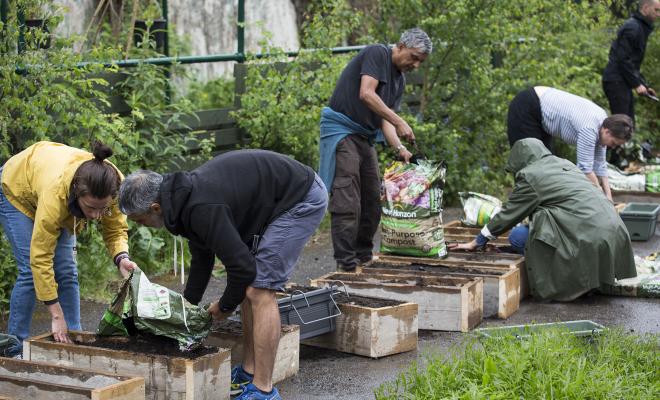06 Feb 2026
What’s group culture and why’s it important?
In order to build a brilliant group, you need to establish a positive group culture. A positive group culture isn’t something that usually happens by itself. It’s something that needs nurturing. Look at how your group works together, its team dynamics, workload share, how it maintains energy, and encourages people to contribute.
Barriers to participation
A very common experience in groups is that when a job needs doing, people are reluctant to step forward and take it on. The bulk of the work ends up being done by the same small number of stretched people. Why don't others step forward? Often there’s barriers to participation. We can help people overcome these.
Common barriers to participation include:
- A tasks feels too big and scary. People worry that it’s going to take too much time.
- It isn’t clear what the task is, so people don’t feel confident saying yes.
- It can feel safer to just let the person who normally does things take it on.
- It doesn’t feel like there’s a great deal of point to the task.
A good group is one where work is shared. A culture where everyone chips in is much healthier than leaning on a couple of people.
Learn more about how to share responsibility for running your group.
Developing effective leadership styles
The culture and interactions within a group are often shaped by the type of leadership guiding it.
Leadership doesn’t just mean the group coordinator. Anyone who takes a lead role is a leader. There’s many styles and attributes people admire in leaders. Passion, knowledge, charisma, relatability are common traits. Your group leadership should be aiming for conscious leadership. That means cultivating and developing different leadership styles for different situations, and being aware of how your leadership impacts your group.
Team development
Psychologist Bruce Tuckman described the pathway teams follow to become high performing. He suggested that teams go through 4 stages:
- Forming. People aren't sure how they fit in and tend to hide their true selves. They tend to remain on their best behaviour.
- Storming. As people become more confident and self-assured, tensions can arise, and challenges begin to break out.
- Norming. As people begin to resolve their differences and appreciate the different strengths and abilities others possess, they begin to come together.
- Performing. People are high in confidence, leadership is shared, and the team feels powerful through collaboration.
Reflect on your own team. What stage is your group working at? What can you do to help your group move towards norming and performing?
People in your group will have different strengths and abilities. It's important to understand this mix of personalities so your group can fully include everybody and use all those strengths to best effect.
Looking after yourself to prevent burnout
Burnout is something that is all too common within campaigning groups. It’s occurs for many reasons:
- Trying to do too much with too few people.
- Work not being shared equally.
- Not enough time to breathe and reflect.
- A culture that demands too much, and where people don't spot the signs of burnout or feel able to intervene.
Often, we burnout because we care. We're in campaign groups because we want to make a difference and make the world a better place. But this means we carry a burden for fixing the things that make us want to act in the first place.
Ideally your campaigning group will foster a culture where people can take on work in a sustainable, sensible way. But it’s also worth being able to spot the signs of burnout and know when people are struggling. Learn more about building resilience within our groups.
Getting your group working really well is something you must invest time in. But that time is well worth investing. A campaign being run by a group that isn't working well together, has poor leadership, fails to understand the strengths of its members, and suffers from people burning out, isn't going to be successful. Campaigning should be something we enjoy. The groups we’re a part of should be fun, sociable and friendly places where everybody feels they can make a contribution.




